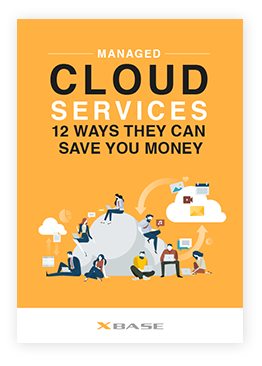Cloud computing has quickly become one of the most widely adopted technologies by individual users and businesses alike. This is because the cloud — a network of third-party servers that enables data storage and delivery of software and IT services via the internet — is highly cost-effective, immediately scalable to match one’s needs, and is considerably more secure against cyberthreats.
However, jumping onto the cloud just because everybody else is doing so is ill-advised. You need to consider what your business needs are and how the cloud will fit into your strategy. Here are a few telltale signs that your firm is ready to adopt this amazing technology:
Your company is growing
The IT solutions you've been using since you first started out might become unwieldy or insufficient once you add more users to your roster. Transitioning by adding to or enlarging your IT systems can make these systems prone to data loss as well as vulnerable to security breaches.
To prevent either scenario from becoming a reality, you can use the cloud to securely consolidate your data. The cloud also has the added benefit of allowing your team to access data wherever they may be. This means that office relocations will be dramatically less disruptive to your operations, and that resuming processes upon establishing new sites can be done more quickly.
Upgrading your in-house IT infrastructure is costly
In connection with the previous point, scaling up your on-site IT resources will entail a sizeable investment that will be difficult to recoup, especially if — knock on wood — your business suffers a slump.
Renting the resources of a cloud service provider (CSP) hedges this risk because that provider did the investing for you. Additionally, the energy and maintenance costs of running cloud servers are spread across the CSP’s many clients, which means savings on your end.
Furthermore, you get to pay only for what you use. During a slow business cycle, you can just scale down your utilization of the cloud as opposed to having to under-use expensive in-house machines.
You need professional IT expertise
Building and managing an IT infrastructure in-house can be feasible when you’re a startup, but as your organization grows and your network becomes more complex, it becomes increasingly difficult and expensive to staff and deliver an equal or greater level of IT services.
Download our free eBook!
Get a better idea of what managed cloud services can do for your business by reading our eBook: Managed Cloud Services: 12 Ways They Can Save You Money.
Beyond making your firm suffer process inefficiencies, remaining in DIY mode also makes your team more prone to configuring your network improperly, neglecting to streamline it resource-wise, and leaving it unsecured against online threats.
You might opt to shift some staff to your IT department, but this takes precious resources away from your core business. An alternative is to hire new IT specialists, but good luck finding and keeping top IT talent from larger firms with bigger compensation and benefits packages. You’ll definitely be much better off offloading IT tasks to a managed IT services provider (MSP) that has expertise in cloud services.
An MSP that doubles as a Cloud Service Provider (CSP) is an immense benefit to your business because it can help you maximize your existing on-site resources while creating synergy with cloud resources. This means the elimination of unused apps and features, the proper allocation of bandwidth, and the optimized use of servers and data storage.
Incredibly, the cloud offers more benefits, namely 24/7 IT performance and cybersecurity monitoring, as well as the proactive and immediate resolution of IT-related issues. Indeed, having IT specialists that live and breathe technology will only help you focus on what you do best: your business.
Once you decide that it’s time for your business to adopt the cloud, talk to our experts at XBASE Technologies. Let us show you the heights of what your business can achieve with the help of our Exponentially Better™ Cloud Services.
Like This Article?
Sign up below and once a month we'll send you a roundup of our most popular posts

